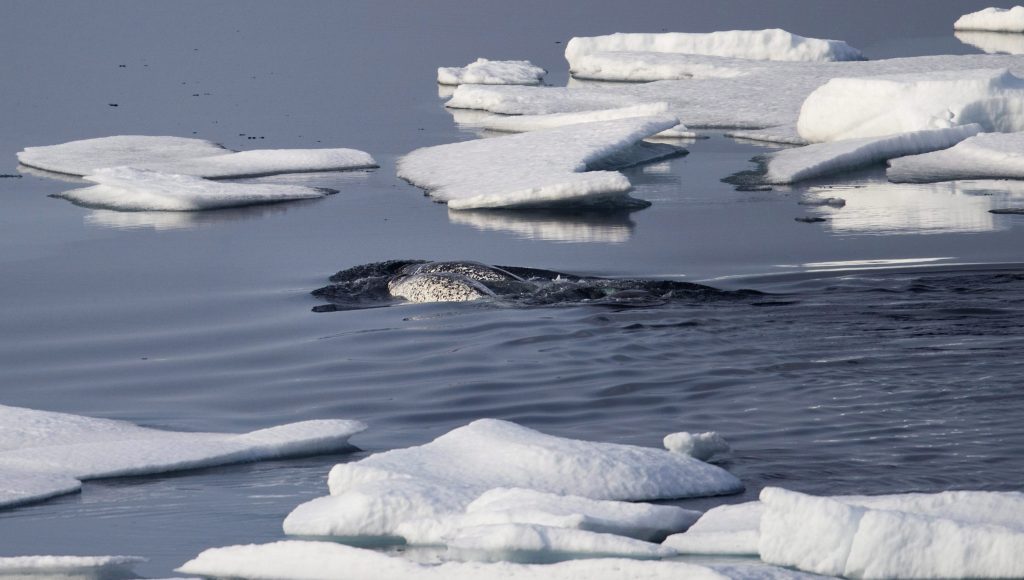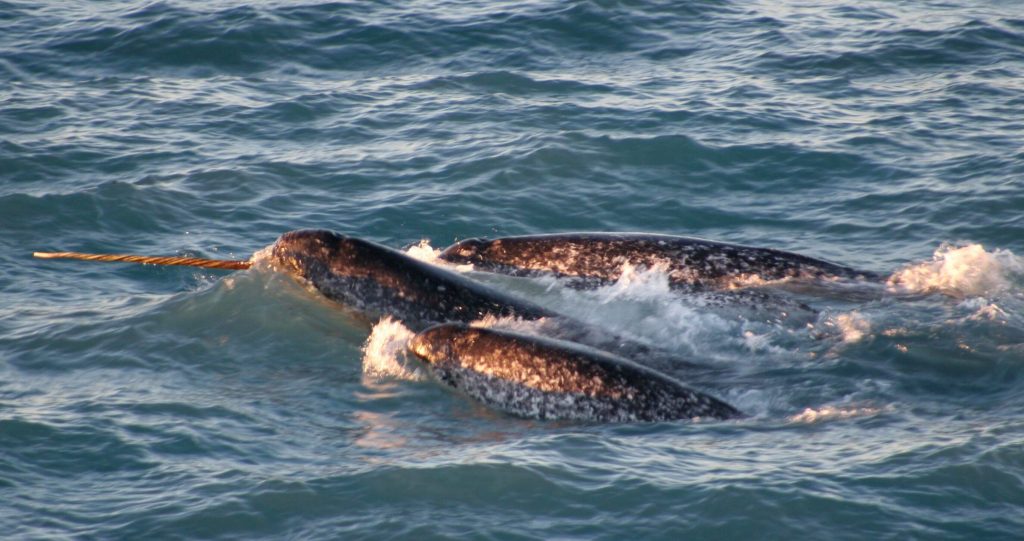Physiological responses in narwhal disrupted by seismic surveys, says study

Sounds from the seismic air guns used in oil exploration disrupt the typical physiological responses in diving narwhals, says new research published Friday in the journal Functional Ecology.
“Most of the potential impacts on the animals take place underwater, so it’s really difficult to study,” Terrie Williams, a professor of ecology and evolutionary biology at UC Santa Cruz and lead author of the study, said in a news release.
“We are fortunate to have this technology to show what’s happening at depth where these animals live in order to understand how their biology may be disrupted.”
The study was done over four-year period in Scoresby Sound, in the eastern part of Greenland.
There, 13 narwhals (five female and eight male) were fitted with heart rate-accelerometer-depth recorders and then exposed to the sounds of vessels and seismic airgun pulses that are typically used when exploring for oil.
The devices allowed the scientists to monitor the animals’ heart and respiration rates as well as their diving and swimming.
A control group of whales that were not exposed to the noise, was also tagged.
Seismic testing is used both by scientists to better understand the earth’s crust as well as by companies looking for hydrocarbons. It involves repeatedly shooting compressed air to the bottom of the ocean every few seconds. The acoustic waves are reflected back to the surface giving a picture of the ocean floor. The testing can last anywhere from a day to weeks.
The data collected in the study suggest that noise trigged a fear response in the animals, that surprisingly included a suppressed heart rate despite the animals deep escape dives when exposed to the noise.
“They’re swimming as hard as they can to get away, and yet their heart rate is not increasing—we think because of a fear response,” Williams said.
“This affects how much blood and oxygen can circulate, and that’s going to be problematic.”
Increasing exposure to human activity
Narwhals are whales whose natural habitat spans the arctic regions of Russia, Greenland and eastern Canada.
In the past, the regions’ isolation and ice cover meant that the animals were infrequently exposed to noise from human activity like heavy industry or commercial shipping.

But as that kind of activity increases in the North, and the ice cover continues to shrink because of climate change, there’s been increased concern about the effect increased shipping traffic and resource exploration may have on the whales.
Williams said the ongoing nature of noise during seismic testing means the animal can’t immediately return to homeostasis, the way it would for a one-off event, for example, if it was caught somewhere and then got free.
“When they escape from the nets, their heart rate comes back up to a more normal rate within three or four dives, but with the seismic ship moving through and the sound bouncing around, the escape response occurred over a longer period,” she said.
The complete study can be found on the Functional Ecology website.
Write to Eilís Quinn at eilis.quinn(at)cbc.ca
Related stories from around the North:
Canada: Arctic Canadian mine to avoid ice breaking in Eclipse Sound this spring due to narwhals, CBC News
Greenland: Greenland accedes to UN treaty against mercury pollution, Eye on the Arctic
Norway: Significant metals discovery in key reindeer herding land in Norway, The Independent Barents Observer



